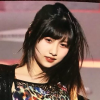Disclaimer: yes, I'm French and I'll introduce the issue with a French point of view, so it may be a bit biased. Mexico also seems to be a good spot for H!P groups, I think because there are lots of jpop enthusiasts in Mexico, but I'm just speculating since I know nothing about Japanese pop culture in Mexico.
----------
You may have asked yourself the question after a jpop concert was announced (and even kpop concerts, but I don't know much about them, so I'll just talk about jpop here): why is France so favoured? Yeah, that must be because Japanese people are fascinated about France, so they absolutely want to go there. But, when you're performing abroad, the beauty of the country isn't the first element you'll consider. A performance is a performance and you come for that first. So this can't explain this French predominance alone. So what is it?
Japanese pop culture in France
The first time Japanese pop culture made a huge impact in France goes back to 1979, when "Space Pirate Captain Harlock" aired in France. Whereas it didn't gain much attention in English-speaking countries at that time, it's been hugely popular in France. 1980s kids' programmes had lots of anime: Grendizer, Judo Boy, Lady Oscar, The Mysterious Cities of Gold, The Adventures of Tom Sawyer, Princess Sarah, Hikari no Densetsu, Captain Tsubasa, Attacker YOU!, Aishite Knight are among the most well-known ones (and I'm only mentioning anime that have aired in the 80s), some of them are still iconic today, and they aired in France years before any English-speaking countries. The symbol of this wave is a show that every child of that time still remembers: the "Club Dorothée" that aired from 1987 to 1997, with lots of cartoons and especially Japanese anime every day, managing to get more than 50% of audience share in the after school slot. It had a huge effect on French culture and helped cement Japanese anime in France. And not only anime in fact, there also were some tokusatsu like Space Sheriff Gavan or Choudenshi Bioman (Toei even had links with the French show).
But despite that anime boom in the 80s and the 90s, Japanese music remained unknown. Openings of the aforementioned anime were often re-recorded by French singers (and also remained iconic: any French person below 50 could sing the French opening of "The Mysterious Cities of Gold", no exaggeration), and French people never really heard Japanese pop music.
From the initial boom to a structured industry
In the 90s and in the early year 2000s, people who were born with anime in their kids' programmes were old enough to work. So these years were the ones when a whole industry emerged: big publishing companies began to publish lots of Japanese manga. Once again, manga boomed and are now part of French culture: 35% of all "comics"* sold in France are manga, France is the second biggest market for manga after Japan, and yeah, even before the US or China for example.
In 1999 a small convention, who's become now the convention with the most attendance outside Japan, was created, that is Japan Expo, which gathers nowadays around 250,000 attendants coming from all over France, and even from abroad. Japan Expo was created as a manga/anime convention, but it extended to other parts of Japanese pop culture, including J-music. They discovered that making Japanese artists come is not easy, as producers are generally reluctant to send their artists abroad. It's a risk, it doesn't bring any money, and why should they look for new fans abroad when those from Japan are enough? So Japan Expo had to make ties with the Japanese music industry by creating their own concert organising company, and they did so very slowly, but in the end it worked, and the pinnacle of their work was, and I'm sure you know what I'm talking about, this 2010 Morning Musume。 concert. At the same time, in 2007, a quite particular TV channel with a remarkable name was created: Nolife. Half gaming and half J-music. It's only a small channel but at that time, you could create a TV channel with not much money which can be seen by a large part of French TV viewers. So they wanted to get some J-music MVs to air on the channel, but once again, Japanese music companies were very reluctant to give them MVs, but one of them accepted very quickly to give them a huge number of MVs almost immediately, yep, you guessed it, that's Up-Front. That's why the channel has a huge catalogue of Hello!Project songs. Since then, the channel still has particular ties with Up-Front. When Michishige Sayumi, Fukumura Mizuki, Iikubo Haruna and Ishida Ayumi had the 15th anniversary handshake event (I was there), they also came to the channel's (tiny) studios. They even went on air. So this channel also makes ties with Japanese music industry, which can help if you want to tour abroad.
Japan Expo and Nolife wouldn't have existed if there weren't these anime from the 70s and the 80s, the people who manage them were born within a culture of Japanese anime and wanted to share their love for Japan.
France now has a real industry of tour organisers who can convince Japanese artists, who aren't easy to convince, by making long-lasting ties with the Japanese music industry. And that, in my opinion, is the real reason for France.
----------
*what we call comics in France refers to American type of comics, but since there isn't any general word to describe books with images on it, I have to use this one.
EDIT from 2018年4月1日: Nolife has just announced its end on April 8th, I'd like to thank them for everything they've done, and especially concerning this article, for everything they've done to launch J-music in general and Hello!Project groups in particular in France.
----------
You may have asked yourself the question after a jpop concert was announced (and even kpop concerts, but I don't know much about them, so I'll just talk about jpop here): why is France so favoured? Yeah, that must be because Japanese people are fascinated about France, so they absolutely want to go there. But, when you're performing abroad, the beauty of the country isn't the first element you'll consider. A performance is a performance and you come for that first. So this can't explain this French predominance alone. So what is it?
Japanese pop culture in France
The first time Japanese pop culture made a huge impact in France goes back to 1979, when "Space Pirate Captain Harlock" aired in France. Whereas it didn't gain much attention in English-speaking countries at that time, it's been hugely popular in France. 1980s kids' programmes had lots of anime: Grendizer, Judo Boy, Lady Oscar, The Mysterious Cities of Gold, The Adventures of Tom Sawyer, Princess Sarah, Hikari no Densetsu, Captain Tsubasa, Attacker YOU!, Aishite Knight are among the most well-known ones (and I'm only mentioning anime that have aired in the 80s), some of them are still iconic today, and they aired in France years before any English-speaking countries. The symbol of this wave is a show that every child of that time still remembers: the "Club Dorothée" that aired from 1987 to 1997, with lots of cartoons and especially Japanese anime every day, managing to get more than 50% of audience share in the after school slot. It had a huge effect on French culture and helped cement Japanese anime in France. And not only anime in fact, there also were some tokusatsu like Space Sheriff Gavan or Choudenshi Bioman (Toei even had links with the French show).
But despite that anime boom in the 80s and the 90s, Japanese music remained unknown. Openings of the aforementioned anime were often re-recorded by French singers (and also remained iconic: any French person below 50 could sing the French opening of "The Mysterious Cities of Gold", no exaggeration), and French people never really heard Japanese pop music.
From the initial boom to a structured industry
In the 90s and in the early year 2000s, people who were born with anime in their kids' programmes were old enough to work. So these years were the ones when a whole industry emerged: big publishing companies began to publish lots of Japanese manga. Once again, manga boomed and are now part of French culture: 35% of all "comics"* sold in France are manga, France is the second biggest market for manga after Japan, and yeah, even before the US or China for example.
In 1999 a small convention, who's become now the convention with the most attendance outside Japan, was created, that is Japan Expo, which gathers nowadays around 250,000 attendants coming from all over France, and even from abroad. Japan Expo was created as a manga/anime convention, but it extended to other parts of Japanese pop culture, including J-music. They discovered that making Japanese artists come is not easy, as producers are generally reluctant to send their artists abroad. It's a risk, it doesn't bring any money, and why should they look for new fans abroad when those from Japan are enough? So Japan Expo had to make ties with the Japanese music industry by creating their own concert organising company, and they did so very slowly, but in the end it worked, and the pinnacle of their work was, and I'm sure you know what I'm talking about, this 2010 Morning Musume。 concert. At the same time, in 2007, a quite particular TV channel with a remarkable name was created: Nolife. Half gaming and half J-music. It's only a small channel but at that time, you could create a TV channel with not much money which can be seen by a large part of French TV viewers. So they wanted to get some J-music MVs to air on the channel, but once again, Japanese music companies were very reluctant to give them MVs, but one of them accepted very quickly to give them a huge number of MVs almost immediately, yep, you guessed it, that's Up-Front. That's why the channel has a huge catalogue of Hello!Project songs. Since then, the channel still has particular ties with Up-Front. When Michishige Sayumi, Fukumura Mizuki, Iikubo Haruna and Ishida Ayumi had the 15th anniversary handshake event (I was there), they also came to the channel's (tiny) studios. They even went on air. So this channel also makes ties with Japanese music industry, which can help if you want to tour abroad.
Japan Expo and Nolife wouldn't have existed if there weren't these anime from the 70s and the 80s, the people who manage them were born within a culture of Japanese anime and wanted to share their love for Japan.
France now has a real industry of tour organisers who can convince Japanese artists, who aren't easy to convince, by making long-lasting ties with the Japanese music industry. And that, in my opinion, is the real reason for France.
----------
*what we call comics in France refers to American type of comics, but since there isn't any general word to describe books with images on it, I have to use this one.
EDIT from 2018年4月1日: Nolife has just announced its end on April 8th, I'd like to thank them for everything they've done, and especially concerning this article, for everything they've done to launch J-music in general and Hello!Project groups in particular in France.



















